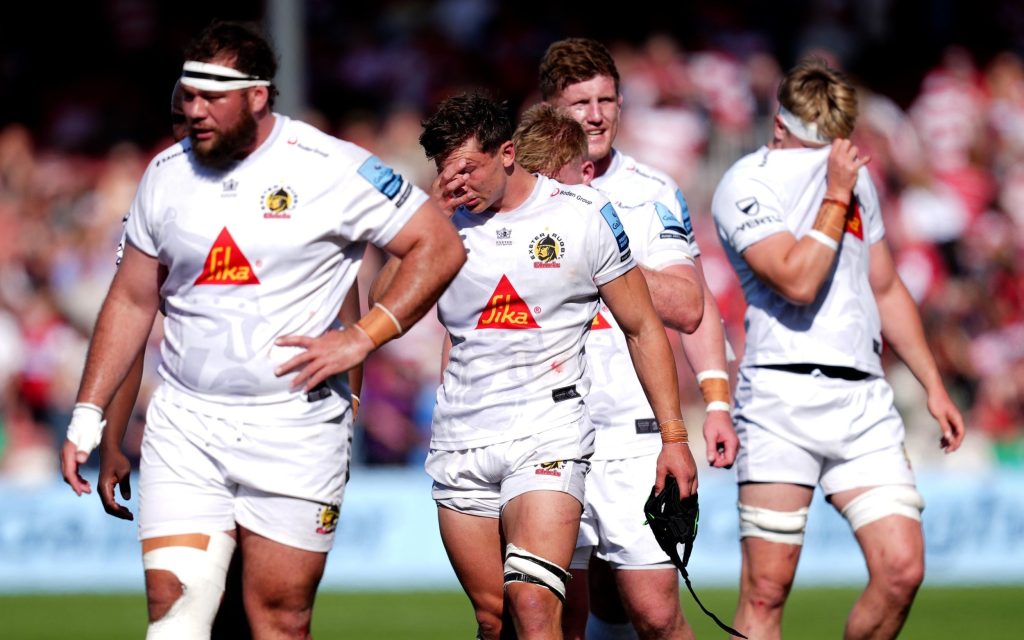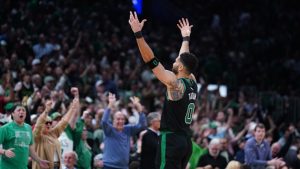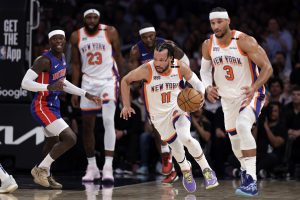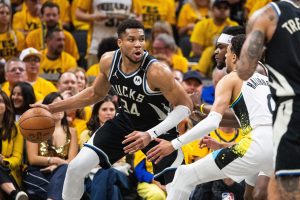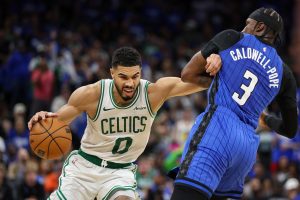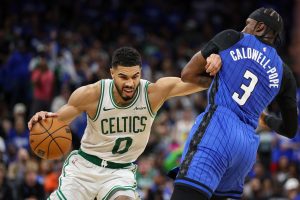
It is October 2010. Exeter Chiefs are heading for another defeat on the road against Northampton Saints in their inaugural season in the Premiership when Chris Budgen powers over for a try from a tapped penalty. The tighthead prop, a former Saint, received a generous ovation from the Franklin’s Gardens crowd. Northampton are still cruising to a win but when Luke Arscott crosses for a try, Exeter secure a losing bonus point in the 27-21 defeat, their first point away from home.
“We celebrated that point afterwards more than we did winning promotion to the Premiership,” recalled one former player. “Our mantra then was that we were going to enjoy every game and get better every game. If we were losing by 30 points we would fight for a bonus point. There was no pressure. We were learning the game and we were fortunate that we could do it without any expectation. On the way we managed to win games.”
Exeter finished the season in highly respectable eighth place in what was then a 12-club league, relishing their underdog status and soon winning affection in the hearts of rival supporters as many people’s ‘second-favourite side’. The story of a team that succeeded in rising up through the leagues to reach the top tier of English rugby was praised as one of the compelling arguments to retain promotion and relegation.
Exeter went on to buck the ‘yo-yo’ trend of the promoted club going straight back down. They did it with a gnarled pack of forwards with “a chip on their shoulders” who had learnt their trade in the Championship. Many of their seasoned campaigners had won battles in the second tier before making their Premiership bows.
The Exeter Chiefs ‘identity’
The Chiefs might not have boasted star names, but they oozed leadership. They had ability to solve problems in real time and to challenge the coaches when they felt things were not right. Some issues were solved in an old-school manner, by going for a few beers. There was a togetherness, a solidarity that ensured that director of rugby Rob Baxter only strengthened the squad with players of the ‘right’ character. Behind the scenes, club chairman Tony Rowe provided the financial support and business acumen to take the club to the next level.
“We were always forward-thinking in terms of how we were going to play,” said another former player. “We built an identity.”
By the time they won their first Premiership title in 2017, Exeter had gone from underdogs to the establishment. Baxter was constantly name-checked as a future England coach, while the club started supplying the national side with players like Jack Nowell, Henry Slade, Geoff Parling, Luke Cowan-Dickie and Sam Simmonds. When Nowell became the first player from the club to be selected for the British and Irish Lions’ tour of New Zealand that summer, the squad celebrated as one. “It felt like we all had been selected,” added a former player.

The zenith was yet to come. In October 2020, 10 years on from their two-legged play-off victory over Bristol to win a place in the Premiership, Exeter were back at Ashton Gate where they defeated Racing 92 to win the Champions Cup. The following weekend they completed the double by winning the Premiership final against Wasps at Twickenham.
The memory of those halcyon days still burns brightly for the players who were involved, many of whom were messaging each other on Monday to try to find out what was going on at the club following the suspension of head coach Rob Hunter and attack coach Ali Hepher in the wake of the 79-17 defeat by Gloucester on Sunday.

It was the manner of the defeat which alarmed most. “Where was the fight?” said one. “If we were losing by 50 points, we would still have been chasing a bonus point.”
The defeat left Exeter adrift in ninth place, having registered just three wins this season, and having been whitewashed in their Champions Cup pool campaign, with a points difference of minus 141 in four games. Omar Mouneimne had already lost his job as defence coach back in October, replaced by Haydn Thomas.
Oh, to be a fly on the wall in the Exeter dressing room.
Club Director Tony Rowe gives his thoughts to the squad after a record defeat.#GallagherPrempic.twitter.com/iHTg8WnPBY
— TNT Sports (@tntsports) April 27, 2025
Rowe revealed on Monday that Baxter will return to front-line coaching as a review of the season takes place, with the club seeking to rekindle past glories.
Exeter left behind in changing landscape
There will be no simple answers. On the face of it, this season’s struggles can be explained in part by expenditure, with Exeter understood to be spending significantly below the £6.4 million salary cap. A simple comparison between the 2020 side, which contained luminaries such as Nowell, Slade, Cowan-Dickie, Sam and Joe Simmonds, Stuart Hogg, Jonny Hill and Dave Ewers, and the current squad is stark.
Yet behind the scenes the decline has been more nuanced and complex. Some believe that began shortly after the 2020 high point. “We used to always be pushing to be ahead of the curve,” said one source. “After 2020, it is as if that became the blueprint. It was as if we said ‘this is what worked’ and kept going back to it, but the game keeps moving on.”
The financial impact of the global pandemic – both Exeter’s finals in 2020 were severely disrupted, with the European final played behind closed doors and with just a few hundred people at the Twickenham showpiece – was also critical in fast-tracking the decline.

Exeter moved swiftly to exploit a loophole to offer 30 long-term contracts ahead of the reduction of the salary cap to £5 million in the 2021-22 season to keep those players at the club for at least another campaign. That meant that by 2023 the club had to let go of almost all of its front-line internationals to remain under the cap.
Players learning in spotlight
There was confidence within the club that it would be able to start again and bring through a new generation of young players – largely through a strong relationship with the University of Exeter – forged in a similar manner to the group that fought their way into the Premiership in the late 2000s.
“The problem is that these young players have had to find their feet in the Premiership and with much greater expectation from supporters because of what the club has achieved,” said one source. “We were able to learn how to play in the Championship for a number of years. The players are having to learn in the spotlight and without the benefit of a winning environment.”
With squads not as deep because of the financial repercussions of Covid, and with a greater emphasis on attack rather than defence in the Premiership, there has been a trend for sides to suffer blowouts when a contest goes away from them. The options to loan out players to Championship sides like the Cornish Pirates are now limited. The Championship itself is not the testing ground it used to be after the Rugby Football Union cuts.
Others feel the coaching ticket should have been refreshed sooner to bring in new ideas, training methods and game plans, while the changing times have meant that the days of sorting issues over beers have gone.
When Hunter took over from Hepher earlier in the year, there was an intention to instigate change and that is likely to accelerate now that Baxter is to return to a hands-on role.
Baxter is said to have stepped back from coaching in the last three or four years but has been overseeing everything in his role as director of rugby. He has been a member of the club’s board since before Covid and retains a strong relationship with Rowe.
“Tony will back Rob to get things right,” said one source.
Yet even in these dark times, there is hope. Exeter’s foundations are too solid for it to be any other way. Rowe is said to be as passionate about the club as he always has been, even if the vision of his appearance in the dressing room after the Gloucester defeat has been dramatised. “To be fair Tony always comes into the dressing room after games, win, lose or draw,” added a source.
There is a healthy budget for next season, with Wallabies Len Ikitau and Tom Hooper and Springbok hooker Joseph Dweba among the new signings, while Dave Walder is joining the coaching team and there is a hope that the club’s identity evolves.

It is October 2010. Exeter Chiefs are heading for another defeat on the road against Northampton Saints in their inaugural season in the Premiership when Chris Budgen powers over for a try from a tapped penalty. The tighthead prop, a former Saint, received a generous ovation from the Franklin’s Gardens crowd. Northampton are still cruising to a win but when Luke Arscott crosses for a try, Exeter secure a losing bonus point in the 27-21 defeat, their first point away from home.
“We celebrated that point afterwards more than we did winning promotion to the Premiership,” recalled one former player. “Our mantra then was that we were going to enjoy every game and get better every game. If we were losing by 30 points we would fight for a bonus point. There was no pressure. We were learning the game and we were fortunate that we could do it without any expectation. On the way we managed to win games.”
Exeter finished the season in highly respectable eighth place in what was then a 12-club league, relishing their underdog status and soon winning affection in the hearts of rival supporters as many people’s ‘second-favourite side’. The story of a team that succeeded in rising up through the leagues to reach the top tier of English rugby was praised as one of the compelling arguments to retain promotion and relegation.
Exeter went on to buck the ‘yo-yo’ trend of the promoted club going straight back down. They did it with a gnarled pack of forwards with “a chip on their shoulders” who had learnt their trade in the Championship. Many of their seasoned campaigners had won battles in the second tier before making their Premiership bows.
The Exeter Chiefs ‘identity’
The Chiefs might not have boasted star names, but they oozed leadership. They had ability to solve problems in real time and to challenge the coaches when they felt things were not right. Some issues were solved in an old-school manner, by going for a few beers. There was a togetherness, a solidarity that ensured that director of rugby Rob Baxter only strengthened the squad with players of the ‘right’ character. Behind the scenes, club chairman Tony Rowe provided the financial support and business acumen to take the club to the next level.
“We were always forward-thinking in terms of how we were going to play,” said another former player. “We built an identity.”
By the time they won their first Premiership title in 2017, Exeter had gone from underdogs to the establishment. Baxter was constantly name-checked as a future England coach, while the club started supplying the national side with players like Jack Nowell, Henry Slade, Geoff Parling, Luke Cowan-Dickie and Sam Simmonds. When Nowell became the first player from the club to be selected for the British and Irish Lions’ tour of New Zealand that summer, the squad celebrated as one. “It felt like we all had been selected,” added a former player.

The zenith was yet to come. In October 2020, 10 years on from their two-legged play-off victory over Bristol to win a place in the Premiership, Exeter were back at Ashton Gate where they defeated Racing 92 to win the Champions Cup. The following weekend they completed the double by winning the Premiership final against Wasps at Twickenham.
The memory of those halcyon days still burns brightly for the players who were involved, many of whom were messaging each other on Monday to try to find out what was going on at the club following the suspension of head coach Rob Hunter and attack coach Ali Hepher in the wake of the 79-17 defeat by Gloucester on Sunday.

It was the manner of the defeat which alarmed most. “Where was the fight?” said one. “If we were losing by 50 points, we would still have been chasing a bonus point.”
The defeat left Exeter adrift in ninth place, having registered just three wins this season, and having been whitewashed in their Champions Cup pool campaign, with a points difference of minus 141 in four games. Omar Mouneimne had already lost his job as defence coach back in October, replaced by Haydn Thomas.
Oh, to be a fly on the wall in the Exeter dressing room.
Club Director Tony Rowe gives his thoughts to the squad after a record defeat.#GallagherPrempic.twitter.com/iHTg8WnPBY
— TNT Sports (@tntsports) April 27, 2025
Rowe revealed on Monday that Baxter will return to front-line coaching as a review of the season takes place, with the club seeking to rekindle past glories.
Exeter left behind in changing landscape
There will be no simple answers. On the face of it, this season’s struggles can be explained in part by expenditure, with Exeter understood to be spending significantly below the £6.4 million salary cap. A simple comparison between the 2020 side, which contained luminaries such as Nowell, Slade, Cowan-Dickie, Sam and Joe Simmonds, Stuart Hogg, Jonny Hill and Dave Ewers, and the current squad is stark.
Yet behind the scenes the decline has been more nuanced and complex. Some believe that began shortly after the 2020 high point. “We used to always be pushing to be ahead of the curve,” said one source. “After 2020, it is as if that became the blueprint. It was as if we said ‘this is what worked’ and kept going back to it, but the game keeps moving on.”
The financial impact of the global pandemic – both Exeter’s finals in 2020 were severely disrupted, with the European final played behind closed doors and with just a few hundred people at the Twickenham showpiece – was also critical in fast-tracking the decline.

Exeter moved swiftly to exploit a loophole to offer 30 long-term contracts ahead of the reduction of the salary cap to £5 million in the 2021-22 season to keep those players at the club for at least another campaign. That meant that by 2023 the club had to let go of almost all of its front-line internationals to remain under the cap.
Players learning in spotlight
There was confidence within the club that it would be able to start again and bring through a new generation of young players – largely through a strong relationship with the University of Exeter – forged in a similar manner to the group that fought their way into the Premiership in the late 2000s.
“The problem is that these young players have had to find their feet in the Premiership and with much greater expectation from supporters because of what the club has achieved,” said one source. “We were able to learn how to play in the Championship for a number of years. The players are having to learn in the spotlight and without the benefit of a winning environment.”
With squads not as deep because of the financial repercussions of Covid, and with a greater emphasis on attack rather than defence in the Premiership, there has been a trend for sides to suffer blowouts when a contest goes away from them. The options to loan out players to Championship sides like the Cornish Pirates are now limited. The Championship itself is not the testing ground it used to be after the Rugby Football Union cuts.
Others feel the coaching ticket should have been refreshed sooner to bring in new ideas, training methods and game plans, while the changing times have meant that the days of sorting issues over beers have gone.
When Hunter took over from Hepher earlier in the year, there was an intention to instigate change and that is likely to accelerate now that Baxter is to return to a hands-on role.
Baxter is said to have stepped back from coaching in the last three or four years but has been overseeing everything in his role as director of rugby. He has been a member of the club’s board since before Covid and retains a strong relationship with Rowe.
“Tony will back Rob to get things right,” said one source.
Yet even in these dark times, there is hope. Exeter’s foundations are too solid for it to be any other way. Rowe is said to be as passionate about the club as he always has been, even if the vision of his appearance in the dressing room after the Gloucester defeat has been dramatised. “To be fair Tony always comes into the dressing room after games, win, lose or draw,” added a source.
There is a healthy budget for next season, with Wallabies Len Ikitau and Tom Hooper and Springbok hooker Joseph Dweba among the new signings, while Dave Walder is joining the coaching team and there is a hope that the club’s identity evolves.
